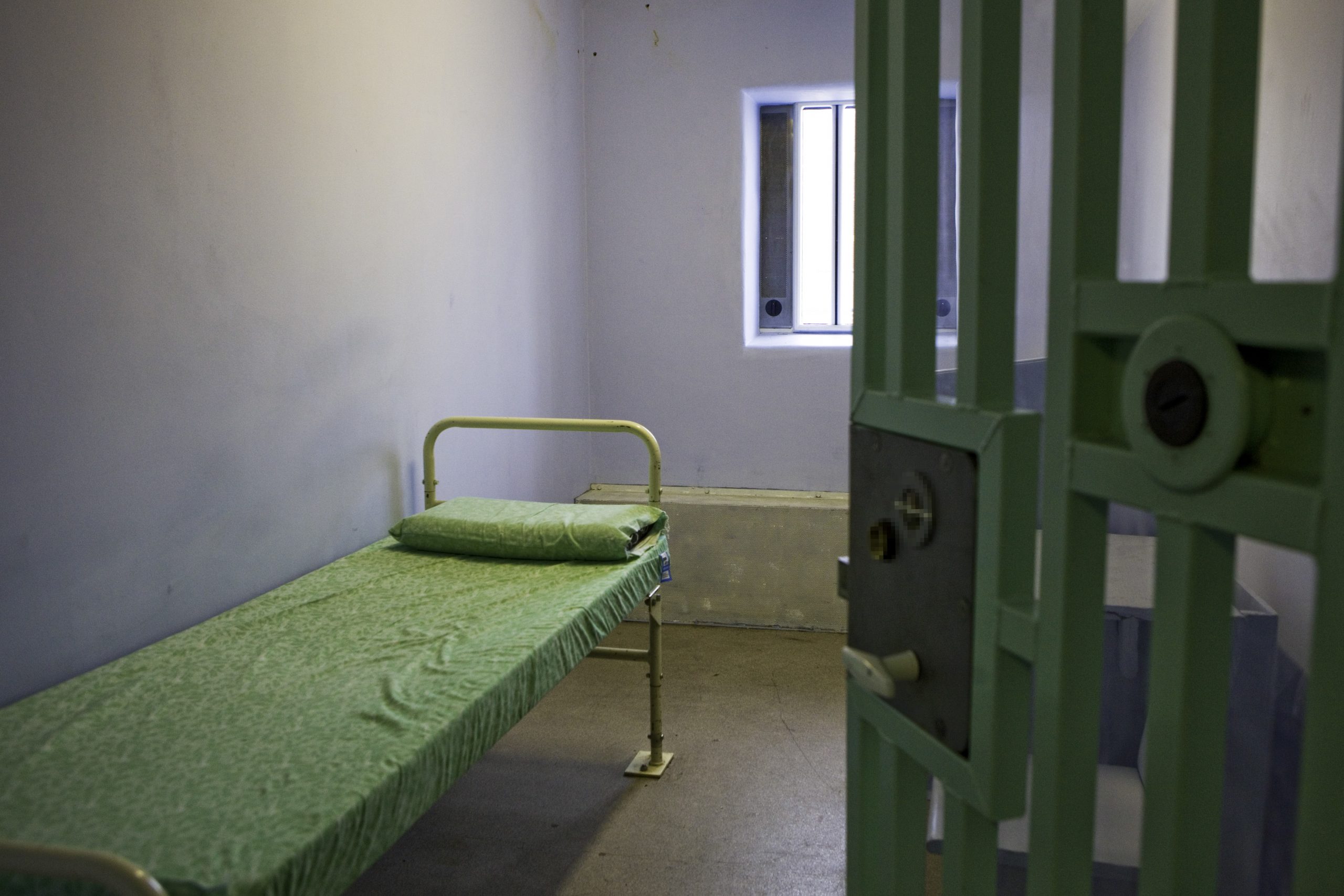
A constant watch cell at the Young Offenders Institution, Aylesbury, Pic: Andy Aitchison
A legal challenge, brought by the Howard League for Penal Reform on behalf of a boy who has been held in prolonged solitary confinement in a London prison, will be heard by the High Court today.
For long periods of his time in the Feltham prison for male juveniles and young offenders, the boy, whose name will remain anonymous and has been identified only as AB in court documents, has been locked alone in his cell for 23-and-a-half hours a day. No provisions have been made regarding his education for months whilst he has been detained.
As reported previously on the Justice Gap, the charity applied to the High Court for a judicial review in February arguing that the boy’s treatment was unlawful.
Whilst the government has since conceded that, for long spells of the boy’s time in custody, aspects of his treatment were unlawful, it is still fighting the claim.
The Equality and Human Rights Commission has also been granted permission to intervene in the case, which raises serious issues about keeping children in prolonged solitary confinement not previously considered by courts in the UK.
‘This is a widespread problem and it is getting worse,’ commented Frances Crook, chief executive of the Howard League for Penal Reform. ‘In just the last week, several more children, held in prisons across the country, have asked the Howard League for help because they are in almost total isolation.’
‘Some of the children we have represented have been in solitary confinement for up to nine months and have been subject to very similar regimes to the boy in this case. They have been allowed out of their cells for about 30 minutes a day, with little or no access to education, limited access to exercise or fresh air, and no association or meaningful intervention.’
Frances Crook, Howard League
The widespread use of solitary confinement of children in prisons in England was first exposed in 2015 in a report by the Children’s Commissioner, which found that one-third of children in prison will spend time in isolation and that the practice is used disproportionately in respect of children from looked after and ethnic minority backgrounds. HM Chief Inspector of Prisons has also drawn attention to a ‘worrying number of instances where isolation was not subject to formal governance’.
As it stands, the UK is trailing behind an emerging international consensus that children should never be placed in solitary confinement, let alone for a prolonged amount of time – which is defined as any longer than 15 days.
The United Nations’ Mandela Rules prohibit the use of solitary confinement for children, which forms part of the case on behalf of AB, and in February the District Court for New York granted an injunction that required the immediate cessation of 23-hour solitary confinement of children. In granting said injunction, the court referred to expert evidence that solitary confinement ‘perpetuates, worsens, or even in some cases precipitates mental health concerns that can lead to long-term and often permanent changes in adolescent brain development’.
A report by the European Committee for the Prevention of Torture released just last week found that in Kent’s Cookham Wood prison ‘high levels of violence were managed primarily through locking juveniles up for long periods of time, on occasion for up to 23.5 hours per day’, in cells which ‘were dark, dirty, poorly lit and inadequately ventilated’. The report detailed encounters with a child who ‘spent 23.5 hours a day lying on his bed, under his covers, blankly looking at a TV screen, talking and meeting no one’. Another boy, aged 15, had been held in these appalling conditions ‘for several weeks’.
The committee found that children were ‘regularly held in conditions akin to solitary confinement for periods of 30 days and some for as long as 60 days or even, on occasion, up to 80 days’. The reported cited two cases of children in Wetherby and Werrington YOIs being segregated for a period of 84 days which it described as ‘staggering’.
The Committee concluded that these conditions amounted to ‘inhuman and degrading treatment’ and recommended that the UK urgently abolish prison powers to hold children in solitary confinement as punishment.






